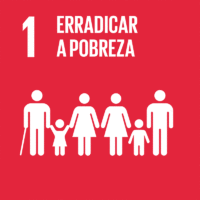Ciência_Iscte
Comunicações
Descrição Detalhada da Comunicação
Perspectives on the value of domestic work in Portuguese society: facts and representations
Título Evento
Colloquium Work Without Borders
Ano (publicação definitiva)
2020
Língua
Inglês
País
Portugal
Mais Informação
--
Web of Science®
Esta publicação não está indexada na Web of Science®
Scopus
Esta publicação não está indexada na Scopus
Google Scholar
Esta publicação não está indexada no Google Scholar
Esta publicação não está indexada no Overton
Abstract/Resumo
According to INE's statistical data, in 2011, the domestic sector employed 3.4% of the paid workers and 7.2% of the women in the labour market, with women constituting about 98.3% of the people doing domestic services.
The object of this paper is the women’s domestic workers (from several origins) and their fragility in the labour market due to their lower qualifications and associative mobilisation.
We aim to discuss some questions: How are these isolated women in the labour market? How do these women workers fit socially, as they are often subjected to the domination of other women? How do these women workers mobilise to overcome labour randomness? Are these women workers more exposed to harassment? What new challenges will women workers face in caregiving?
Historically, domestic work is an occupation that carries a universe of representations regarding its precise relationship with the labour market. These are activities that have culturally acquired feminine contours and have tended to be identified with women. Then, between domestic workers and the women employers, there is undoubtedly the issue of class belonging that distinguishes them, despite gender identity claims and conquests. Also taking up Margaret Benston's Marxist idea, domestic work is fundamental to the functioning of capitalism because it contributes to the reproduction of the workforce and to the production of surplus value, from which we conclude on the importance and value of domestic work.
The Class Association of Domestic Workers in Hotels and Private Houses goes back to 1921 and it was only in democracy, in 1977, that the 1st Congress of Domestic Service Workers was held. Currently there are two unions with jurisdiction in this sector.
Facing to the changes like demographic ageing, there is certainly an urgent need to rethink legislation, training and the roles of the professionals in the domestic sector.
Agradecimentos/Acknowledgements
--
Palavras-chave
Domestic work,value,capitalism,unionism,Portugal
Classificação Fields of Science and Technology
- Sociologia - Ciências Sociais
Contribuições para os Objetivos do Desenvolvimento Sustentável das Nações Unidas
Com o objetivo de aumentar a investigação direcionada para o cumprimento dos Objetivos do Desenvolvimento Sustentável para 2030 das Nações Unidas, é disponibilizada no Ciência_Iscte a possibilidade de associação, quando aplicável, dos artigos científicos aos Objetivos do Desenvolvimento Sustentável. Estes são os Objetivos do Desenvolvimento Sustentável identificados pelo(s) autor(es) para esta publicação. Para uma informação detalhada dos Objetivos do Desenvolvimento Sustentável, clique aqui.

 English
English




